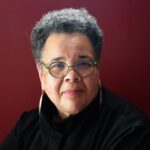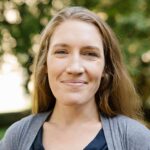Individual Persons
Syllabi - Topic: Individual Persons - 32 results
Select an item by clicking its checkboxA 2013 course by Daniel Alvarez at Florida International University focuses on Lewis's "interpretation of Christianity . . . (and) whether his interpretation merits the acclaim that it has received . . . (and) whether Lewis can be said to be a defender of Christianity in its most rigorously orthodox form."
A 2013 course by Zachary Braiterman at Syracuse University explores "core philosophical concepts and dynamics in the philosophical writings of Martin Buber and Franz Rosenzweig."
A 2011 course by Christopher Elwood at Louisville Presbyterian Theological Seminary "examines the thought of John Calvin in the context of his life and work on behalf of the movements for reform of the church in sixteenth-century Europe."
A 2013 course by William Robert at Syracuse University on the thought of Luce Irigaray.
A 2002 course by Joe Incandela at Saint Mary's College concerns "what religion is, what questions religion prompts and how it functions in people'sâ lives to affect how those lives are lived, how hopes unfold, and how others are encountered."
A course by Patricia Miller at Syracuse University explores the "Platonic philosophers and thematics that were most influential in shaping the structures of early Christian theological, cosmological, ethical, and hermeneutical thinking."
A course by Patrick Frierson at Whitman College "provides an overview of Kierkegaard's major works."
A 2009 course by John Caputo at Syracuse University inquires "of what can be called Aradical theology@ with a special focus on Hegel and the theological tradition that ensued after Hegel, down to the most lively among contemporary Hegelians, Slavoj Zizek, and his radical readings of Christianity."
A 2006 course by Scott Seay at Christian Theological Seminary "dealing primarily with the life and thought of John Calvin . . . But secondarily with the impact that Calvin has had on the trajectories of Western Christianity."
A 1998 course by Jeffrey Carlson at DePaul University explores Paul Tillich's "analysis of religion," Christianity, and Buddhism.
A 2013 course by Joseph Boenzi at the Dominican School of Philosophy and Theology "offers a general history of the life, work and thought of this missionary, bishop, founder and doctor of the Church."
A 2010 course by Richard Taylor at Marquette University on "the psychology, epistemology and metaphysics of Thomas Aquinas."
A 2012 course by Richard Taylor at Marquette University "on the nature of the human intellect" as understood by Thomas Aquinas and his sources.
A 2016 course by Michael Dodds, O.P. at the Dominican School of Philosophy and Theology explores "classical and contemporary questions regarding the nature of God and creation . . . Through the retrieval of the tradition of Thomas Aquinas. Existence and attributes of God, divine compassion and human suffering, the possibility and nature of God-talk, divine action and contemporary science, cosmology and creation."
A 2014 course by Sean Michael Lewis at Reformed Theological Seminary serves as an "introduction to the life and thought of Jonathan Edwards, utilizing both primary and secondary sources."
A 2009 course by Gordon Jensen at Saskatoon Theological Union "is an introduction to the theology of Martin Luther . . . In its historical context."
A 2011 course by Ann Burlein at Hofstra University introduces students to the thought of Friedrich Nietzsche.
A 2011 course by Daniel Alvarez at Florida International University on the thought of Michel Foucault.
A 2011 course by Wesley Wildman at Boston University aims to "read and understand the theology of Friedrich Daniel Ernst Schleiermacher, one of the most important and influential European intellectuals of the 19th century, and known variously as the Father of Romanticism, the Father of Hermeneutics, the Father of German Plato studies, the Father of Modern Protestant Theology, and the Father of Liberal Christian Theology."
A 2011 course by Bryan Stone at Boston University School of Theology examines "the primary doctrinal, methodological, and practical commitments of John Wesleyâs theology as developed in his sermons, hymns, writings, and life-praxis. . . . [as well as] contemporary trends in Methodism and in Wesleyan theology . . . ."
A 2009 course by Michael Andres at Northwestern College offers a "study of John Calvin's Institutes of the Christian Religion, as well as a survey of other varieties of Reformed theology, including later Calvinism."
A 2002 course by K. I. Koppedrayer at Wilfrid Laurier University "is a study of Gandhi, the man, and Gandhi, the myth. It is about colonial India and the life and times of Mahatma Gandhi, his struggles for personal freedom and for a free India. It is also about our memory of Gandhi."
A 2012 course by Charles Bellinger at Brite Divinity School "addresses key themes in the writings of Soren Kierkegaard, with a view to the place of his ideas within modern moral philosophy."
A course by Michael Zank at Boston University "covers major sources in the modern Continental philosophical conversation on the philosophy of religion focusing on the writings of Kant, Schleiermacher, Hegel, and Kierkegaard."
A 2002 course by Amir Hussain and Crerar Douglas at California State University, Northridge, includes "a close reading of Blake's biography . . . [and] the art and poetry that he created."
A 2007 course by S.M. Cohen at the University of Washington introduces the thought of pre-Socratics, Socrates, Plato, and Aristotle.
A 2014 course by David DeCosse at Santa Clara University uses selections from the Summa Theologica to survey Thomas's theology and ethics.
A 2010 course by Alexander Hwang at Louisville Presbyterian Theological Seminary introduces "to the lives and thoughts of four significant medieval theologians each representing a different medieval context: Prosper of Aquitaine (380-455), Anselm of Canterbury (1033-1109), Thomas Aquinas (1225- 74), and Julian of Norwich (1342-1423)." Special emphasis is "on the theme of grace and freedom, with attention to how these theologians integrate practice and belief, spirituality and theology."
A course by Alfred Freddoso at the University of Notre Dame is designed " to see in some depth the relation among the main elements of St. Thomas's general moral theory as laid out in the First Part of the Second Part of the Summa Theologiae, viz., the treatises on beatitude, action, passion, habit, virtue, sin, law, and grace, and (b) to explore in more detail certain specific aspects of these treatises." The distinctions between Aquinas' moral theory and deontologism and consequentialism are also discussed.

